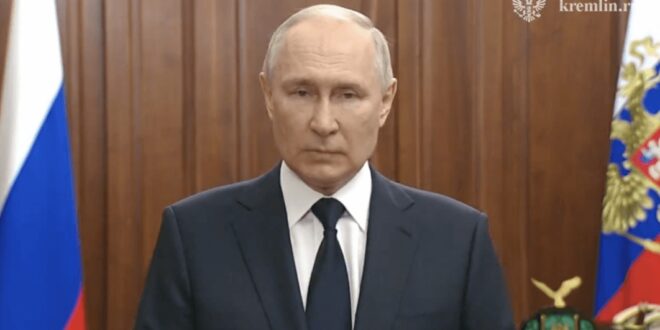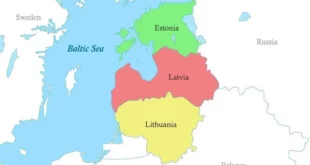The war between Russia and Ukraine has become more complex in the wake of the past weekend, which found Yevgeny Prigozhin marching his troops toward Moscow, and President Vladimir Putin finding a safe haven for Prigozhin in Belarus. The conventional wisdom among politicians and pundits is that this is an opportunity for Ukraine and its Western allies to increase the pressure on Russia. Former U.S. ambassador to Russia Michael McFaul, for example, favors “better and more weapons and better and more sanctions as fast as possible,” believing that Putin is more likely to “negotiate an end to this war if he is losing on the battlefield.” The problem, however, is that the war remains unwinnable; neither side has the ability to achieve a decisive victory.
In view of President Putin’s failure to escalate against Prigozhin and his willingness to negotiate a solution that made him look weak at home, there is possibly a place for diplomacy to resolve the war in Ukraine as well. Direct talks between Russia and Ukraine in the near term seem unlikely, but the possibility of a U.S. president making a difference should not be ignored. The fact that Putin refused to prosecute Prigozhin, and is willing to allow his mercenary forces to join the Russian army points to the Russian leader’s hopes to avoid additional internal conflict. It’s hard to know what Putin is thinking, but his willingness to compromise with Prigozhin as well as the fateful domestic challenge that he faces could make the Russian leader willing to entertain the possibility of negotiation. His dreams of restoring the Russian empire have been shattered.
If so, only the United States can address the national security problems of both Ukraine and Russia. Ukraine will want protection from future Russian acts of aggression. Russia will want to lessen the threat of Western encirclement on its vulnerable borders. No matter how this war ends, Russia will find itself in an existential security situation on its entire western frontier that only the United States can ameliorate. In addition, only the United States can lead the international effort to rebuild Ukraine. The United States will be indispensable to this process.
Presumably the Biden national security team understands that a nuclear-armed Russia requires stability, and that a Putin regime, however execrable, cannot be ignored for that very reason. A weakened Russia in turmoil is a greater threat to the United States and the West than a stable Russia in the hands of an authoritarian leader. Any attempt to steer the Russian-Ukrainian situation to a negotiated solution will require Biden to pursue an institutionalized dialogue with the Kremlin, regardless of who is in charge. Putin presumably understands that he is less secure today because of Prigozhin, and that Russia is less secure today because of Putin’s decision making.
In order to address Russia’s security concerns, particularly its strategic encirclement, the United States could promote a cease-fire and indirect negotiations. The United States could offer to remove its regional missile system from Poland and Romania, supposedly there to defend against an unlikely Iranian attack. The United States could offer to remove all tactical missiles from Central Europe in return for the withdrawal of Russian missiles from Kaliningrad and Belarus. The United States could withdraw its airborne forces from Romania and close its base in Poland in return for limits on Russian deployments on their western front While the odds may not favor negotiations at this point, the idea that only Ukrainian and Western escalation will get Putin to the bargaining table seems illusory.
For the past several months, the mainstream media, particularly the Washington Post, have been using their editorial pages to gain support for increased military assistance for Ukraine, arguing that the “strategy that has kept Israel safe can protect Ukraine, too.” Post editorials favor the so-called “porcupine strategy” of providing arms shipments to Israel, arguing that this has “kept the Jewish state’s enemies at bay for the past 50 years.”
The notion that U.S. military aid to Israel has been the key to Israeli security is wrong. With or without U.S. military assistance, Arab states are no match for Israeli military prowess, which has been established over 75 years of warfare. The key to Israeli security has been the role of negotiation, particularly Carter’s arm-twisting of President Sadat and Prime Minister Begin to forge a settlement. The agreement led to Egypt’s withdrawal from the Arab alliance, the neutrality of the Egyptian military, and Israel’s emergence as the dominant power in the Middle East. There are no realistic military options for Arab states without Egyptian participation. President Carter was vilified by the Arab states for all these reasons.
Along with the achievements of the Panama Canal treaty and the diplomatic recognition of China, Carter’s Camp David process led to the separate peace between Israel and Egypt in 1979. Nevertheless, the mainstream media consistently underestimate the role of President Carter as a peacemaker as well as the role of diplomacy in creating conditions for peace. Like Presidents Barack Obama in 2009 and Joe Biden in 2021, Jimmy Carter inherited an international mess. Obama had to deal with George W. Bush’s misbegotten wars in Afghanistan and Iraq; Biden had to deal with the detritus of the worst president in U.S. history; and Carter had to clean up the decision making machinations of Henry Kissinger, Donald Rumsfeld, and Dick Cheney from 1969 to 1976. During the Carter years, no U.S. soldier died in the Middle East. Conversely, over the past 40 years, nearly all of the deaths of U.S. servicemen have taken place in the Middle East.
Carter’s urgings also had a great deal to do with President Bill Clinton focusing on bringing together Israeli President Yitzhak Rabin and Palestinian leader Yasir Arafat. It was Carter who convinced Clinton of the importance of a public handshake between Rabin and Arafat, a remarkable photo opportunity despite Rabin’s grimace.
Secret diplomacy was the key to resolving the Cuban missile crisis, leading to the withdrawal of U.S. tactical missiles from Turkey in exchange for the withdrawal of Soviet short-and medium-range missiles and strategic bombers from Cuba. U.S. conventional superiority in the Caribbean made this solution possible, but the role of secret diplomacy was essential. Diplomacy may provide the key to future Ukrainian security just as U.S.-sponsored negotiations contributed to the permanence of Israeli security with the Camp David Accords.
Greater military assistance to Ukraine as well as Ukrainian membership in NATO will merely increase the danger of an isolated and threatened Russia that ensures long-term instability in Central Europe. The United States cannot stop arming Ukraine, but military assistance could be used to guide Kyiv toward negotiations if Moscow shows any willingness to agree to talks.
The Middle East and Cuban scenarios beg questions regarding how to end the war between Russia and Ukraine, which neither Ukraine nor Russia can win. Continued fighting and greater military assistance will only increase Russian paranoia regarding U.S. intentions on their border, creating a Kremlin leadership that will be bitter and isolated. In order to have any possibility for a stable long-term relationship with Russia, it is essential to find a short-term approach for dealing with Putin.
 Eurasia Press & News
Eurasia Press & News



